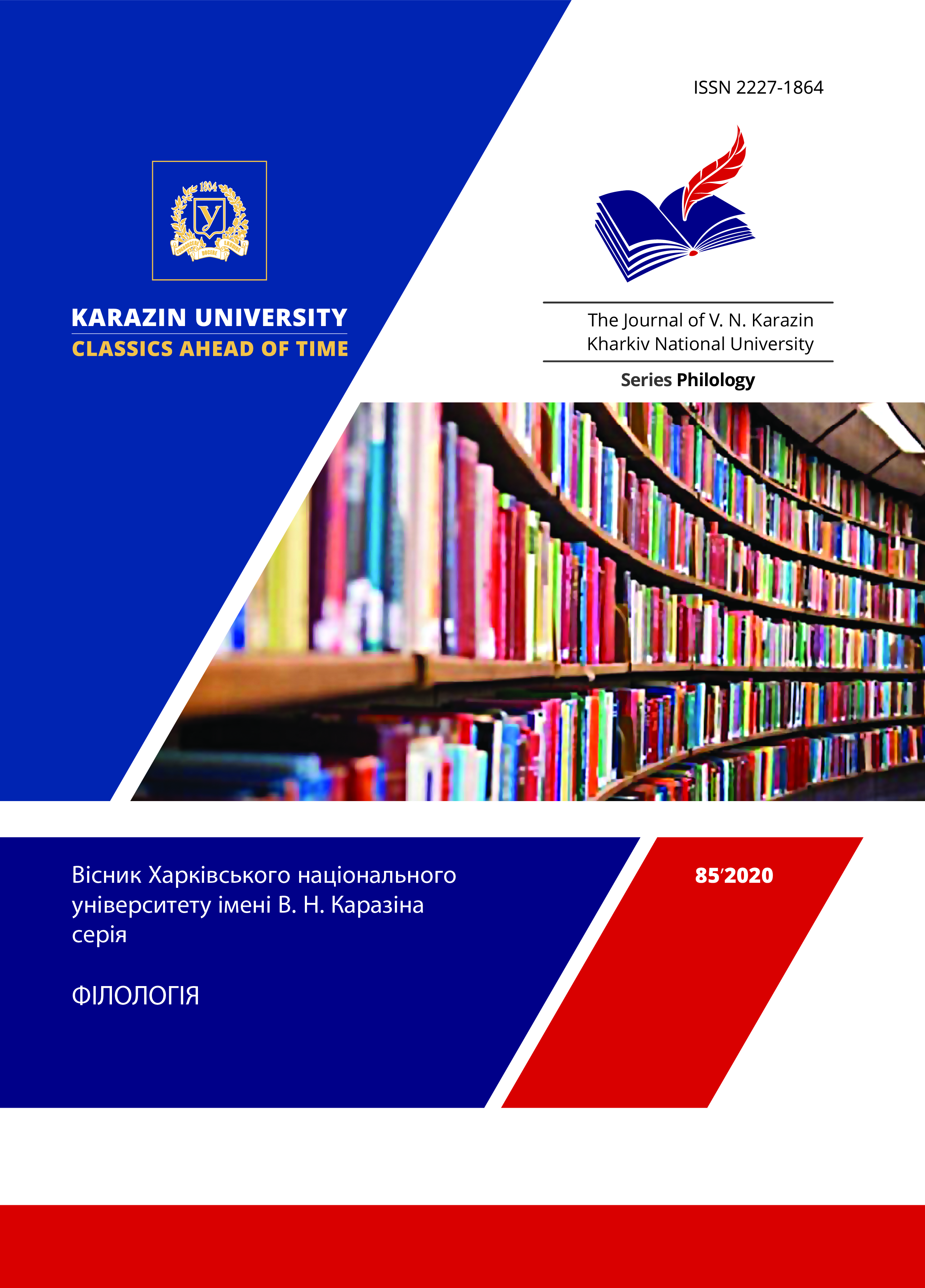Isomorphism in nominative models of abstract substantives with state of mind and physical state meaning
Abstract
In the article, the author studies the isomorphism of nominative models of the fields of spiritual state and physical state, noting that the isomorphism is manifested at all language levels. The presence of significant number lexemes with the erased inner form that binds the nomination of person spiritual condition field with the subjects physical condition field, as well as the presence of semantically stable constructions like the ardor of character, one of which members is also a sign of a physical object, shows that the phenomenon of this isomorphism was inherent in the language over a long period of historical development. Syntactic derivatives with the meaning of a spiritual state are formed from verbs that nominate physical states and processes. Isomorphism of spiritual and physical nominative models is connected with the phenomenon of language economy. According to observations, language, if possible, tends to minimize forms despite to the wealth of meanings; when it comes about spiritual state nomination, the speaker chooses the form which describes the material visible world, what is tangible to all people. The premise of that was such a feature of human perception as synesthesia. The isomorphism of nominating the spiritual and physical state greatly contributed to the objectification and personification of abstract concepts, which affects the consciousness of speakers as well as the conceptualization of ‘state of mind’ nature. The article also notes that the active process in modern language is the expansion of the abstract substances semantics and an increase in the number of concepts with a much more extended abstraction, due to this, the field of a person's spiritual state can also be replenished. Abstraction and extended abstraction are distinguished by the author. Extended abstraction is formed on the basis of polysemicity, the main feature of the extended abstract concept is the expansion of the semantic structure and the formation of a new semantic core, different from the generating base. The article provides examples of semantic abstraction expanding in the abstract substances.
Downloads
References
Abaev V. I. Reflection of the consciousness work in the lexical-semantic system of language // Leninism and problems of linguistics. Moscow: Nauka, 1970. Pp. 232-262.
Apresyan Yu. D. The Image of a person according to the language data. Attempt at a system description // Selected works, volume II. Integral description of the language and system lexicography, Moscow: school of Languages of Russian culture, 1995, Pp. 348-388.
Apresyan Yu. D. System lexicography. Metaphor in the semantic representation of emotions // Selected works, vol. Integral description of the language and system lexicography, Moscow: school of Languages of Russian culture, 1995, Pp. 453-465.
Arutyunova N. D. Language and the world of man. 2nd ed. Moscow: Languages of Russian culture, 1999, 896 p.
Vezhbitskaya A. Russian language / Translation by G. E. Kreidlin // Language. Culture. Cognition, Moscow: Russian dictionaries, 1996, Pp. 33-89.
Vezhbitskaya A. Interpretation of emotional concepts / Translation by O. N. Lyashevskaya // Language. Culture. Cognition, Moscow: Russian dictionaries, 1996, Pp. 326-376.
Gilferding A. On the affinity of the Slavic language with Sanskrit / A. Gilferding. Saint Petersburg: Printing house of the Imperial Academy of Sciences, 1853-294 p.
Kost I. Ya. Mechanisms of verbalization of the emotional state of a person in the Ukrainian prose text // Scientific notes of the Tauride national University, Vol. 24, no. 4, Simferopol, 2011, Pp. 279-284.
Lakoff George, Johnson Mark. Metaphors we live by. Moscow: editorial URSS, 2004, 256 p.
Popov S. L. The Construction Who has whom/what as an ergative rudiment of Russian grammar: cognitive-evolutionary interpretation of semantics / The Journal of V. N. Karazin Kharkiv National University. Series "Philology".Vol. 83. 2019. Pp. 114–121.
Russian dictionary / ed. by M. S. Sheveleva: In 4 vol. M.: Russian language Publishing house, 1985. 736 PP.
Explanatory dictionary of Russian language / ed. V. I. Dal: In 4 vols. M.: Russian language Publishing house, 1989. 779 PP.
Whorf B. The Relation of Habitual Thought and Behavior to Language // History of linguistics of the XIX and XX centuries in essays and extracts. M.: Prosveshchenie Publishing house, 1960. Pp. 198-225.
Cherneyko L.O. Lingual-philosophical analysis of an abstract name. M.: MSU Publishing house, 1997. 400 PP.
Internet sources
https://www.adme.ru/svoboda-kultura/15-izyaschnyh-i-tonkih-citat-alisy-frejndlih-967560




